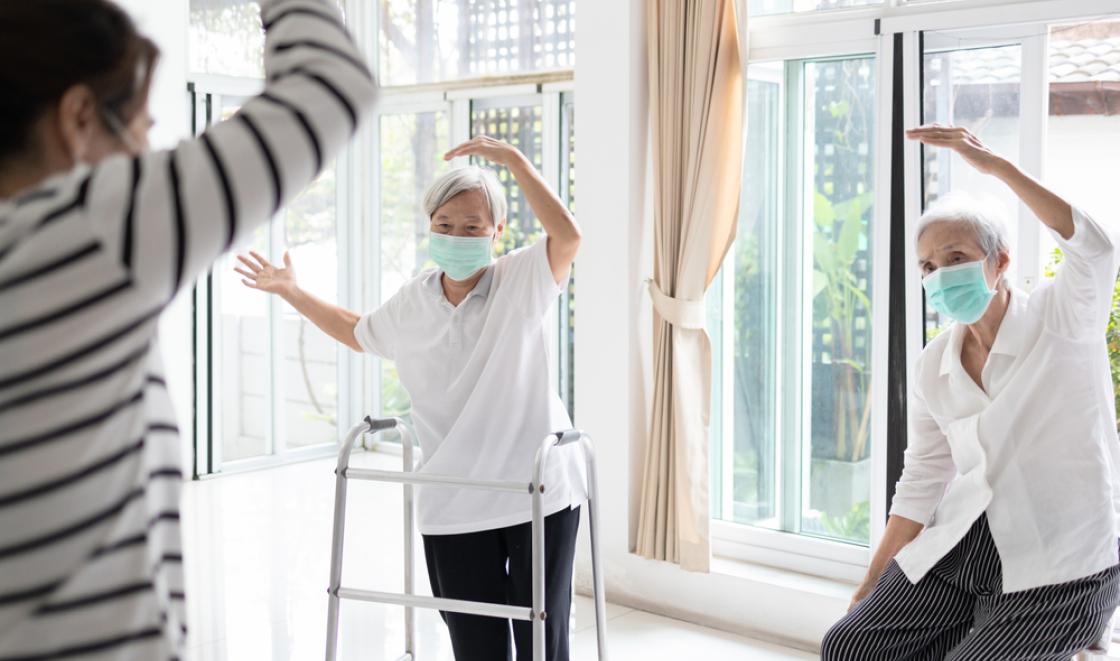How the research will be carried out
Our study has three phases:
Phase one
We will search the literature to describe how care homes and long-term facilities previously have physically distanced older people to control the spread of other infectious and contagious diseases.
Phase two
a) We will recruit six care homes in England. For each care home we will conduct individual remote interviews with care home managers/deputies, registered nurses, and care staff that will be video- and audio-recorded with permission. Interviews will be conducted with individual residents and families/friends and with permission will be video- and audio-recorded. We will gather local policies and protocols related to managing social distancing and isolation of residents. We will gather care home information such as resident occupancy, staffing, and COVID-19 infection rates.
b) We will carry out a focus group(s) with external stakeholders who have knowledge and expertise at a wider level relevant to the pandemic for the care home sector, e.g. local authority providers, clinical commissioning groups, hospital discharge teams, representative bodies for care home providers.
Phase three
Our analysis of the data will help us to co-design a toolkit of resources for residents, families/friends, and care homes. The resources will share which interventions and strategies for social distancing and isolation for residents work well and which do not. These resources will support decision making about health and care delivery in care homes and help build resilience.
Content will be presented in different ways to maximise accessibility and impact. e.g. using flow charts to present evidence-informed guidance, and film to narrate the stories of older people, their families/friends and care home staff. Throughout and on completion of the project we will share the findings of our research in different ways and with different audiences.
How service users are involved in the research
During the development of the grant application the chief investigator had discussed the application with two family members of older people who are living/ have lived in care homes. We consulted with the Service User and Carer Research Expert Group from the Centre for Public Engagement, Faculty of Health, Social Care and Education, Kingston University. We asked the Group for their views about: the importance and relevance of the research topic; understanding of the terms social distancing and isolating of residents; the proposed design and methods including suggestions about how to maximise recruitment of residents and families/friends and making the interview process as user-friendly as possible. We also asked for their feedback on the Plain English Summary to help us ensure that the language is user friendly and understandable.
We will actively involve representatives of service users, carers, and the public throughout the research. We have recruited eight members for the project PPI Group ensuring users of care services and their families from diverse backgrounds are well represented. Two members of the PPI Group will be members of the Project Steering Committee. PPI contribution to the project will include reviewing all participant-facing paperwork (e.g. project flyers, participant information sheets and consent forms, interview guides). Service users and carers will contribute to the development of the evidence-informed guidance and resources toolkit, and to the dissemination of project outputs.
Our collaborators
Our team includes experienced professionals who work in the care home sector. Our proposed project monitoring and advisory group includes representatives of older people living in care homes and their families/friends, experts representing the care home sector, care home nursing, and infection control and prevention. The project team comprises researchers from King’s College London, University of Kent, a patient and public involvement fellow, and two senior health professionals who work in the care home sector. The knowledge, expertise, and perspectives of these service user and public representatives and those with a professional role in health and social care services will help us achieve the objectives of this research.
Potential impact of this research
Residents, families/friends will benefit from evidence-based care during social distancing and isolation in order to contribute to preventing and reducing the incidence of COVID-19. The experience of care, involvement in care, and feeling of well-being for residents and families /friends will be improved.
Care homes, their staff and networks will have access to evidence-informed guidance and resources. This guidance will help fill a significant evidence gap. The culture of care, organisational resilience, and well-being of care home staff will be improved. Learning from our research has the potential to help inform the planning and delivery of health and care for this older people population beyond the acute phase of this pandemic. It will provide support and signposting for any further outbreaks of the coronavirus and potentially other infection-related outbreaks such as clostridium difficile, methicillin-resistant staphylococcus aureus, diarrhoea and vomiting, and other acute respiratory infections.
This study is funded by NIHR. It was adopted by ARC South London in November 2020 and will be completed by October 2021.

